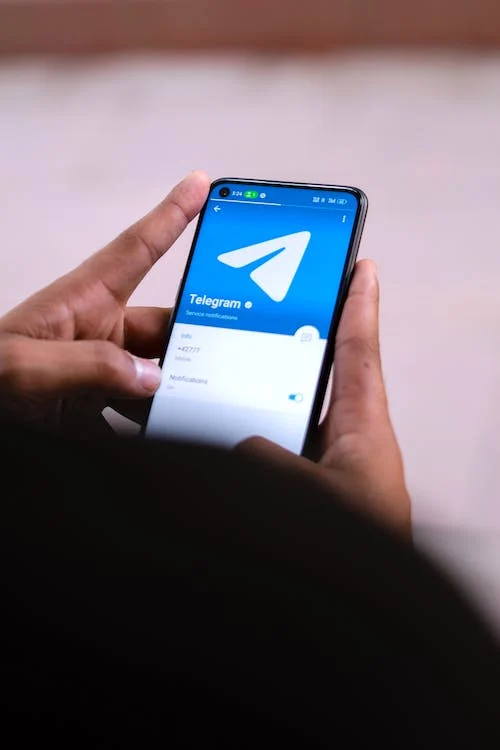Why Young Professionals Struggle to Find Time for Meaningful Dating Connections

Careers, ambitions, and socializing leave little room for connections. Online dating platforms encourage superficial connections.
Young professionals often find themselves caught in a whirlwind of demanding careers, personal ambitions, and social expectations, leaving little room for meaningful romantic relationships. The pursuit of career advancement frequently requires long hours, constant networking, and a relentless focus on performance, which can lead to physical and emotional exhaustion. In fact, burnout among young people is on the rise. Nearly half (48%) of 18-to-29-year-olds reported feeling drained compared with 40% of those aged over 30, according to a Gallup poll. Women were more likely to suffer from burnout than men (46% vs. 37%).
This situation leaves many young adults with limited energy or willingness to invest in developing deep connections after a long day. Additionally, the rise of remote work has blurred the boundaries between professional and personal life, making it harder to carve out dedicated time for dating amidst a constant influx of work-related responsibilities. Balancing a social life, self-care routines, and personal growth only further complicates the equation, leaving little bandwidth for seeking or sustaining romantic relationships.
The Role of Online Dating Platforms
Compounding this challenge is the prevalence of online dating platforms, which, while convenient, often encourage superficial interactions rather than fostering meaningful connections. The paradox of choice in online dating can overwhelm users, making it challenging to prioritize quality over quantity. The abundance of options can lead to "dating fatigue," where users swipe endlessly but struggle to form genuine connections.
Furthermore, many young professionals feel pressure to "have it all" by excelling in their careers, maintaining social lives, and pursuing self-improvement, leaving romantic relationships as a lower priority. Essentially, young professionals tend to be emotionally unavailable and gravitate toward potential partners who are like them because "they understand" what being in their shoes is like. This strategy can backfire, with people complaining about a promising new partner not prioritizing them and their relationship. If one wants to meet emotionally available people, they need to become more emotionally available themselves. They need to make time not just once they've found a great match but also to look for a great match.
Technology offers many opportunities for meeting partners. There is a myriad of platforms on the market, but dating apps for professionals stand out. These apps often require users to provide information about their profession, educational background, and career goals, which helps filter out users who may not align with these priorities. Professional dating apps often provide tools tailored to busy lifestyles, such as curated matches, limited daily swipes, or scheduling-friendly features.
Additionally, features like video chats and in-depth questionnaires allow users to gauge compatibility before investing time in a date. Some platforms even use AI-driven matchmaking to enhance success rates, helping young professionals find partners who share similar values and lifestyles. By focusing on quality rather than quantity, these platforms can help cut through the noise and offer more meaningful interactions.
Finding Love Has Never Been Harder
While finding a partner has always been a priority for many, finding and keeping love is harder now than it has been at any point in time, according to Paul Brunson, a relationship expert for Tinder. There are more variations of what is seen as an acceptable relationship, e.g., monogamous or non-monogamous, long-distance, etc. This diversification of relationship models makes it more complicated to find a partner whose expectations and goals align.
People also expect more from their partners than ever before. They want intellectual equals, corporate advisors, HR experts, great co-parents, phenomenal lovers, and more. The sheer weight of these expectations can make dating feel like an exhausting job interview rather than an organic process of connection.
Moreover, the digital age has amplified the phenomenon of "grass is greener" syndrome. With dating apps and social media constantly showcasing seemingly perfect relationships, many young professionals feel pressured to keep searching for an ideal partner rather than investing in a promising relationship. The rise of relationship analysis tools, such as attachment style assessments and personality compatibility tests, has further influenced dating dynamics. While these tools can be helpful, they also encourage some people to overanalyze relationships instead of allowing them to unfold naturally.
People are less satisfied with their relationships on average in 2025, but the top 20%—those who are happiest with their partners—are more satisfied than ever. Couples tend to be sadder because they know there's more choice and feel the grass is always greener. They use online tools to check things like attachment styles and might determine their styles are incompatible. However, some people use these tools to their advantage, inspiring each other to improve their relationship or filling a void. This results in a low percentage of delighted individuals and many unsatisfied ones.
How Young Professionals Can Overcome These Challenges
While the modern dating landscape is undeniably complex, young professionals can take proactive steps to increase their chances of finding and maintaining meaningful connections. Prioritizing emotional availability, setting boundaries with work, and being intentional about dating can make a significant difference.
- Time Management: Treat dating as an important commitment, just like career development or personal growth.
- Choosing the Right Platform: Leverage dating apps that align with personal and professional values rather than relying on generic swiping apps.
- Setting Realistic Expectations: Understand that no partner can fulfill every need; relationships require compromise and effort.
- Being Present: Instead of endlessly searching for the next best option, focus on building deeper connections with promising matches.
- Embracing Imperfection: Rather than looking for an ideal partner, seek someone who aligns with your core values and is willing to grow together.
Conclusion
The struggle of young professionals to find time for meaningful dating connections is a reflection of broader societal shifts—fast-paced careers, digitalization, and evolving relationship expectations. While the demands of work and personal ambition can make dating feel like a secondary priority, true connection requires intentionality. By balancing career aspirations with emotional availability, utilizing the right dating platforms, and embracing the reality that perfect relationships don’t exist, young professionals can create opportunities for love that are both fulfilling and lasting. In the end, it’s not about finding time for love—it’s about making time for it.




